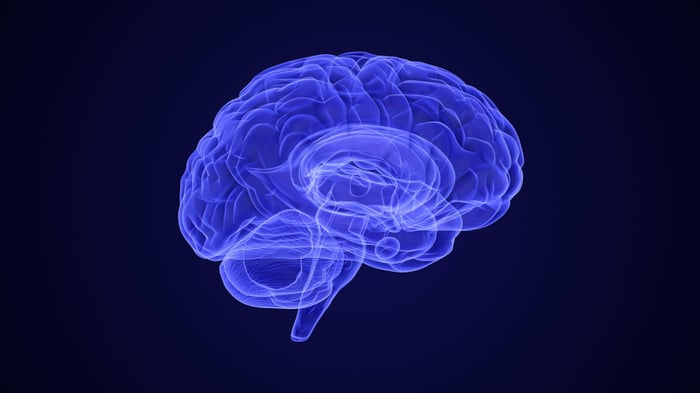Problem Gambling in 2025
Gambling can be a fun activity for many people, but for others it can become challenging. It's important to understand what problem gambling is and to be able to recognize problem gambling signs and symptoms. It's also important to understand that even occasional gambling can have serious emotional and financial consequences that affect personal and family life. If you or someone you know begins to feel anxious or preoccupied with gambling, starts chasing losses, or borrows money to continue gambling, then these could be the signs of problem gambling. These warning signs should be identified and addressed as early as possible to prevent the worsening of the gambling-related issues.
Emotional and Psychological Effects of Problem Gambling
Gambling can have serious emotional and psychological consequences that are often overlooked. The rush of excitement from gambling can be addictive, leading individuals to seek that thrill repeatedly. Over time, this can result in increased levels of stress and anxiety, especially when gambling starts to interfere with daily life.
Feelings of guilt and shame are common among those struggling with gambling problems. These emotions can stem from lying to loved ones, financial losses, or the inability to stop gambling despite wanting to quit. This emotional burden can be overwhelming, often leading to depression and a sense of hopelessness.
Additionally, the highs and lows of gambling create an emotional rollercoaster. Winning can bring temporary joy, but losing can lead to intense frustration and anger. This emotional volatility can affect other areas of life, making it difficult to maintain a stable mood or a positive outlook.
Social isolation is another emotional consequence. As gambling takes up more time and energy, individuals may withdraw from social activities and relationships. This isolation can worsen feelings of loneliness and depression, creating a vicious cycle that is hard to break.
The psychological effects of gambling can also include a distorted sense of reality. Some individuals may believe that their luck will change or that they can control the outcome of games, leading them to make irrational decisions. Such thinking can only worsen the gambling problem and make it harder to recognize the need for help.
First, it is important to understand the emotional and psychological impact of gambling for those affected and their loved ones. These issues can cause the situation to become worse if they are not addressed early on. It is possible to seek help from friends and family and from professionals, which can make a big difference in these emotional and psychological challenges.
Financial Implications
Gambling problems can take a devastating toll on one’s financial stability. Again, it’s worth noting that the frequency of gambling doesn't necessarily determine the presence of a gambling problem; even sporadic gambling can lead to severe emotional and financial repercussions.](https://www.ncpgambling.org/help-treatment/faqs-what-is-problem-gambling. When gambling turns into an uncontrollable habit, it can lead to significant debt and financial instability. The pressure to win back lost money can result in risky financial decisions, like taking out loans or using savings intended for other purposes. Such a cycle of debt can be very difficult to break and can lead to long-term financial problems that affect an individual’s quality of life.
The most immediate financial impact is the loss of money spent on gambling activities. Over time, these losses can add up to substantial amounts, draining bank accounts and leading to the depletion of savings. The financial strain can extend beyond personal finances, affecting family budgets and creating stress within the household.
Credit card debt is another common issue for those with gambling problems. Many people use credit cards to fund their gambling, leading to high-interest debt that can be difficult to pay off. This can result in mounting interest charges and fees, making it even harder to recover financially. Such impact can affect credit scores and make it tough to get loans or mortgages in the future.
In extreme cases, individuals may resort to illegal activities such as theft or fraud to finance their gambling. Not only do these have legal consequences, but they can also lead to further financial ruin. The repercussions of such actions can be long-lasting and will affect future employment and personal relationships.
Another consequence is the effect on one's ability to maintain employment. The time and mental energy spent on gambling can lead to decreased productivity, absenteeism, and even job loss. The stress and anxiety that come with financial problems can also impact job performance and make the problem worse in terms of both finance and emotions.
Understanding these financial implications is crucial for those dealing with gambling problems and their loved ones. It highlights the importance of seeking help early and finding ways to manage and mitigate the financial damage caused by gambling.
Effects on Personal Relationships
Gambling affects more than just the person involved; it can place a significant strain on personal relationships. The changes in behavior that accompany a gambling problem can be confusing and distressing for family and friends.  Trust is an issue because the individual may hide their gambling or lie about their financial situation. This secrecy can cause emotional pain and conflict within the family.
Trust is an issue because the individual may hide their gambling or lie about their financial situation. This secrecy can cause emotional pain and conflict within the family.
Communication breakdowns are common in these situations. The person is preoccupied with their gambling issues and may become more withdrawn and uncommunicative. Loved ones may feel shut out and powerless, unaware of how to best support the situation. This lack of open dialogue can exacerbate feelings of frustration and helplessness on both sides.
Financial strain is another source of tension. When gambling results in significant financial losses, it can affect the family’s budget and long-term financial plans. The pressure of dealing with unpaid bills, mounting debt, and the loss of assets can cause much arguing and create tension at home. Especially, children can be affected by the uncertainty of the situation, not knowing the cause of the tension and being affected by its consequences.
Emotional disconnect is also a concern. The person with a gambling problem may have mood swings, irritability, or depression, making it difficult to maintain a stable and loving relationship. These emotional changes can lead to partners and family members distancing themselves even further.
Social relationships can also suffer. Friends may feel ignored or hurt by the individual’s preoccupation with gambling. They may not receive or may not want to receive the gambler's invitations to social events, and they may avoid the gambler, thus isolating both of them. What was once a strong social network may begin to dwindle, leaving the individual with limited support systems.
These complex relationship dynamics can be navigated through the establishment of open, honest communication and the seeking of external support when needed. Couples or family therapy can provide a safe environment for dealing with these issues and the rebuilding of trust and understanding. Having a support system can make a huge difference in the recovery process; it helps the individual and their loved ones deal with the challenges associated with gambling problems.
Getting Help and Problem Gambling Recovery
Seeking help for a gambling problem is an important step towards recovery and regaining control of one's life. There are many resources available to help people overcome their struggles and find solutions to their problems. One of the most effective methods is counseling, which allows the person to work with a therapist to understand the causes of their gambling behavior and find ways to overcome them. Therapists can also assist with the emotional and psychological effects of gambling, such as stress, anxiety, and depression.
Support groups are another useful resource. Gamblers Anonymous is an example of a group where people can share their experiences and feel comforted knowing that others are going through similar things. Relating to other people who have faced similar challenges can help you feel less alone and provide encouragement. These groups often follow a set of guidelines that help the individual stay accountable for their recovery.
In some cases, medication may be prescribed to help manage the symptoms of other mental health issues that can lead to gambling, such as depression or anxiety. Consult a healthcare provider to see if this is an option for you.
Having a strong support network is important. This can include friends, family members, and professionals who can offer emotional and practical assistance. It is important to talk to your loved ones and make them aware of how they can help you through this process, whether it is by attending counseling sessions together or just being there for you.
Learning healthy coping mechanisms is also vital. Finding activities that bring you joy and letting them occupy the time and energy you would have spent on gambling is important. Exercise, hobbies, and social activities are all important for overall health and well-being and can serve as positive outlets for stress and anxiety.
Financial counseling can be helpful in dealing with the financial consequences of gambling. A financial advisor can help you develop a plan for paying off debt, managing your money, and improving your financial situation. This can help alleviate some of the financial stress and provide a sense of direction.
Remember, recovery from problem gambling is a process that takes time and effort. Don’t rush through it, and be kind to yourself. The path may have its highs and lows, but with the right help and resources, it is possible to overcome a gambling problem and lead a healthier, more balanced life.
If you are ready to start now, check out the BetBreak workbook and self-study guide.




